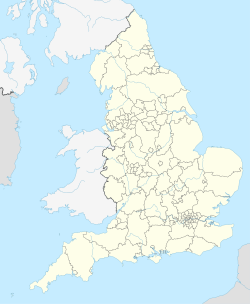Yarm Depots | |||||||
|---|---|---|---|---|---|---|---|
 The Cleveland Bay pub, behind it was the location of the S&DR Coal and Lime Depot near Yarm Depots station | |||||||
| General information | |||||||
| Location | Egglescliffe, Borough of Stockton-on-Tees, County Durham England | ||||||
| Coordinates | 54°30′54″N1°21′22″W / 54.51507°N 1.35622°W | ||||||
| Platforms | ? | ||||||
| Other information | |||||||
| Status | Disused | ||||||
| History | |||||||
| Original company | Stockton & Darlington Railway | ||||||
| Pre-grouping | North Eastern Railway | ||||||
| Post-grouping | |||||||
| Key dates | |||||||
| 17 October 1825 | Branch line to Yarm opens | ||||||
| 1830 | Opened to passengers | ||||||
| June 1862 | Station closed to passengers | ||||||
| 1872 | Station and branch line closed | ||||||
| |||||||
Yarm Depots railway station was a railway station on a short branch line on the original route of the Stockton & Darlington Railway (S&DR), which served both the village of Egglescliffe in County Durham and the market town of Yarm (across the River Tees) in North Yorkshire, England. [1]



